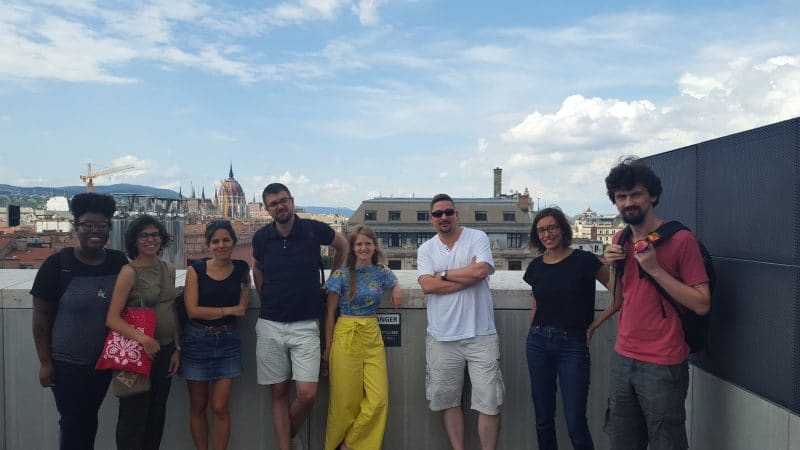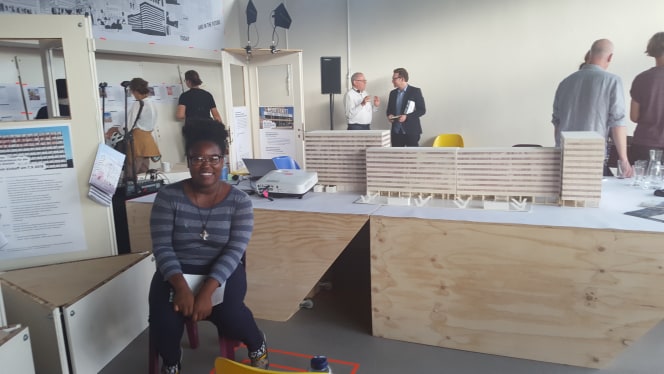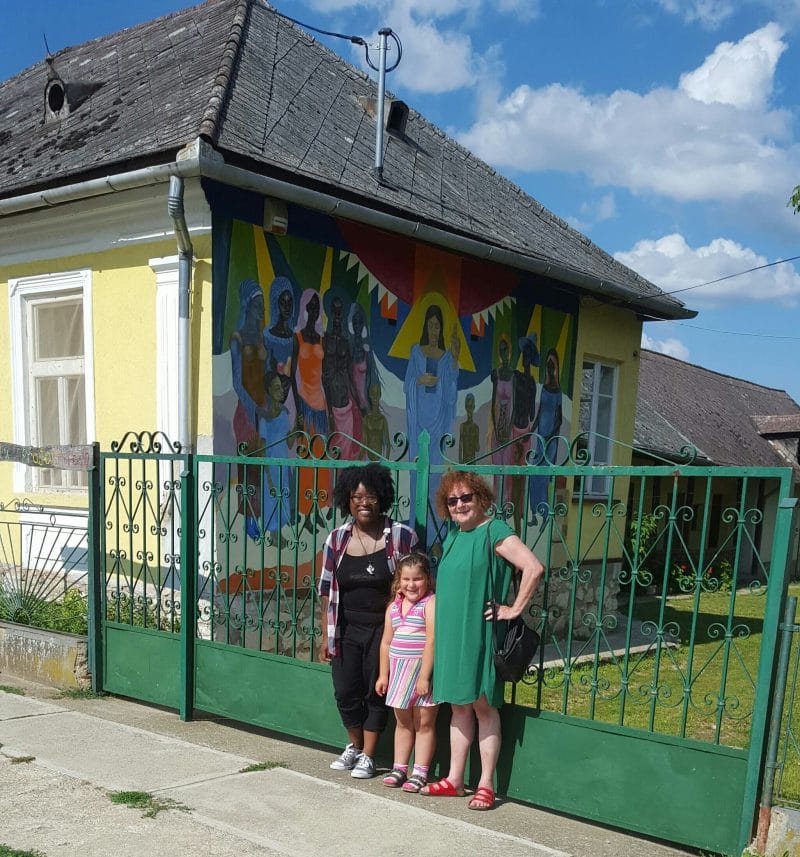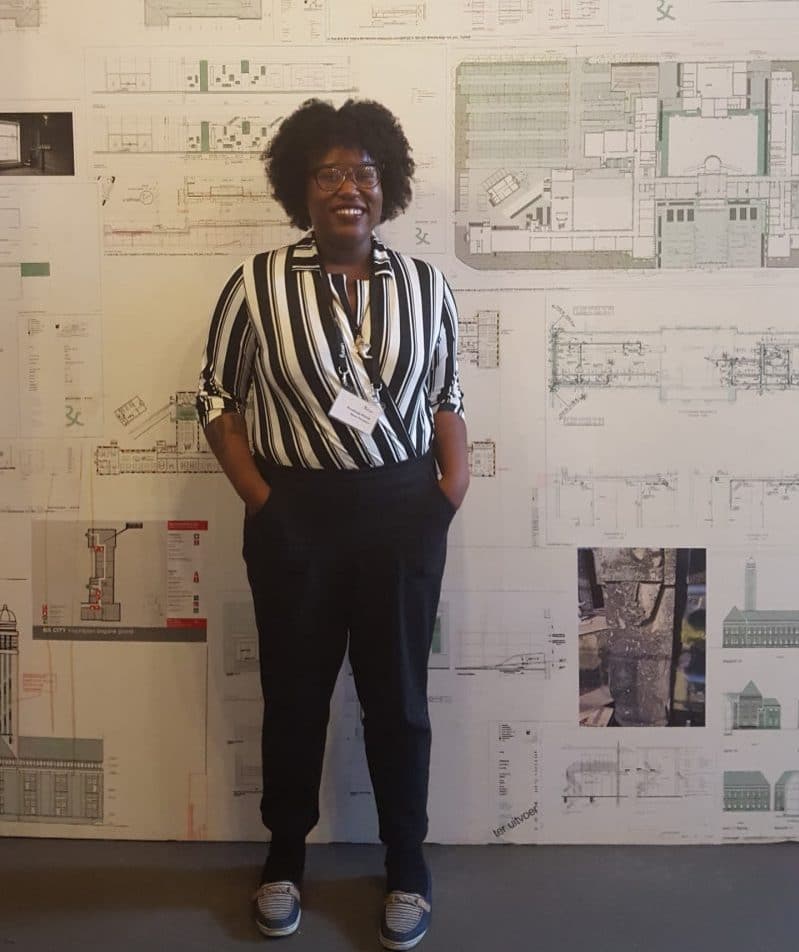
The Thomas J. Watson Fellowship is for graduating seniors who are nominated by one of 40 partner U.S. colleges or universities to experience a year of independent travel and study abroad. The fellowship seeks students who are courageous leaders and have new ideas they want to explore. Fellows engage with and explore their deepest interests on a global scale by pursuing their own projects—which can be in any field—outside of the U.S. At the end of the year, fellows attend a “returning fellows” conference, where they share their experiences. The fellowship provides a generous stipend, health insurance, and 12-months of school loan payments, if applicable.
We talked to Nomalanga Shields, a 2018-2019 Thomas J. Watson Fellow who is traveling through Hungary, Germany, India, and South Africa, to learn more about the fellowship and get some tips for preparing an application.
1. What inspired you to apply for the Watson Fellowship?
Before college, I had never traveled outside of the U.S. and barely within the U.S., and did not have much of an interest in traveling. I am not sure if this lack of interest derived from not having the money to travel or the lack of exposure to other cultures. Maybe it was both. While attending Grinnell College, I took a course titled “Bound by Borders: Law and Migration.” The professor expanded the way that the class thought about migration by bringing in guest speakers from different countries who analyzed migration through their different cultural lenses. This course made me feel, for the first time, that I had the tools to engage in global conversations about social issues that I cared deeply about.
I always knew I had a passion for housing issues given my own experiences with gentrification in Chicago and lingering questions about how cities could be planned and developed in ways that equally benefit the lives of all who reside in them. I had questions such as, “how can development not equate to displacement” and “how is it possible to sustain marginalized communities cultural ties to an area?” I was attracted to the Watson since I wanted to continue to engage in these global conversations just as I was doing in the classroom setting at Grinnell. The Watson would give me the opportunity to focus on housing and community-building through my own ever-growing projects. For a full year, my passion would be my sole purpose.
When I was applying for the Watson, I was hoping to gain insight into what marginalized groups were doing to tackle housing issues in their respective countries. Now that I am actually in my Watson year, I have expanded how I define marginalized communities and housing issues. This has caused me to not only look at what marginalized groups are doing in reaction to unfair housing conditions, but also to look at countries where socially-inclusive housing policies and projects are being promoted. For example, I focused on Roma housing issues in Hungary, but now, I am in Germany learning about co-housing and socially inclusive project housing. From my Watson year, I hope to not only gain housing insight from marginalized groups but to also begin to develop my own vision or ideas about social housing in urban areas.

2. What have been some of the most eye-opening moments during your fellowship?
During my Watson year, I am researching housing displacement and activism amongst marginalized communities. I am exploring the different ways that marginalized communities are talking about housing issues and the ways that they are pushing for more inclusive communities within their respective countries. Currently, I am in Berlin, Germany to learn about different social housing initiatives in the city. While I am not focusing on a specific marginalized community, I am learning a lot about housing projects that positively impact a range of underserved groups who are native and non-native to Germany. I have been able to connect with people who are leading cohousing projects and who built model tiny homes to house migrants coming to Berlin. When I am not meeting with people for my project, I am reading books, going to events, or casually talking to locals to learn more about the country I am in. The interesting part about being in Berlin is the past politics around the Berlin Wall, which was an act of social exclusion in itself and led to many revolutionary acts to bring down the Wall. Working on my project while learning more about the country I am in has been extremely important in helping me understand the current dynamics of the places I travel to.
I had a unique experience when I was in Hungary for two months. I focused on Roma activism and displacement in Eastern Europe. I was fortunate to visit a small Roma village called Bodvalenke, which is where the Fresco Village Project is based. The project brings Roma artists from across Europe to paint frescos on the homes of those residing in the village. These frescos tell stories of struggle, love, and visions of the future among the Roma community. Being in the village was interesting since I did not expect to visit a village where there was an extreme lack of food and clean water. I learned this is actually the norm for most Roma villages in Europe. After walking around for sometime in the village, I was asked the question “What do you think of the way we are living”? Honestly, I did not know how to answer because I felt that I knew and they knew that their living conditions were not those in which people can even live, let alone survive. My answer made them curious about my experiences being Black in America and a formed a growing trust since I showed that I cared that they were being treated unfairly.
The Roma in the village did not know much English and while there were people around to translate, I felt our strongest communication was just sitting amongst each other, laughing, eating traditional Hungarian foods, and looking at the beautiful frescos together.

3. What tips would you give others applying to the Watson Fellowship?
The biggest tip I would give others applying to the Watson Fellowship is to think about yourself as a person before you even touch ideas for a project. What are things that get you excited, topics you constantly think about, or interests that you have not had a chance to explore? What life experiences have crafted this soon-to-be college graduate and how can you share these experiences with the world while also learning about the experiences of others in the process? Thinking about these questions made it easier for me to write the personal statement and to think about what I really did want to get out of my Watson year.
Also, a Watson project does not need to be focused on a social issue. Mine is since that is what I am interested in, but a project can be about anything and everything as long as it has personal significance to the applicant and can be cross-culturally explored in different countries.
I think my ability to demonstrate a personal connection to my project is what made my application stand out. I have a small amount of professional experience working or researching housing issues, but, more importantly, I have had many personal experiences with housing and social inclusion and exclusion that I often reflect on. The Watson is looking for candidates who are highly self-aware and motivated. When I did my Watson interview, I made the mistake of overly preparing to explain and defend my project idea. I was asked less about the project and more about me and how I ticked as a person. They asked me about times when I was stressed, had to think outside of the box, or completely failed, and wanted me to talk about my response to those feelings and situations. The best way to prep for a Watson interview is to not focus just on the project, but to think critically about times of challenge and failure and what you gained from those moments.
To embark on an independent yearlong journey is great but also very stressful. The project will most likely develop and change once the fellow is doing it. Therefore, the implementation of the project depends on if the fellow has the imagination to envision that development and the drive and curiosity to do it independently. In your application and interview, focus on demonstrating these characteristics, and you’ll be a strong applicant.

Nomalanga Shields is a 2018-2019 Thomas J. Watson Fellow. Her Watson project focuses on housing displacement, activism, and social inclusion strategies, primarily in Hungary, India, and South Africa. She graduated from Grinnell College with a B.A. in Sociology with a focus on social movements and resource accessibility in underserved communities. A Chicago native, she loves writing poetry, walking along Lake Shore Drive, and debating about the best restaurant to eat deep-dish pizza. To get occasional updates about her Watson year, follow her blog ethnicuproot.wordpress.com/!
Interested in applying? Bookmark the Thomas J. Watson Fellowship to your ProFellow account.
© Victoria Johnson 2018, all rights reserved